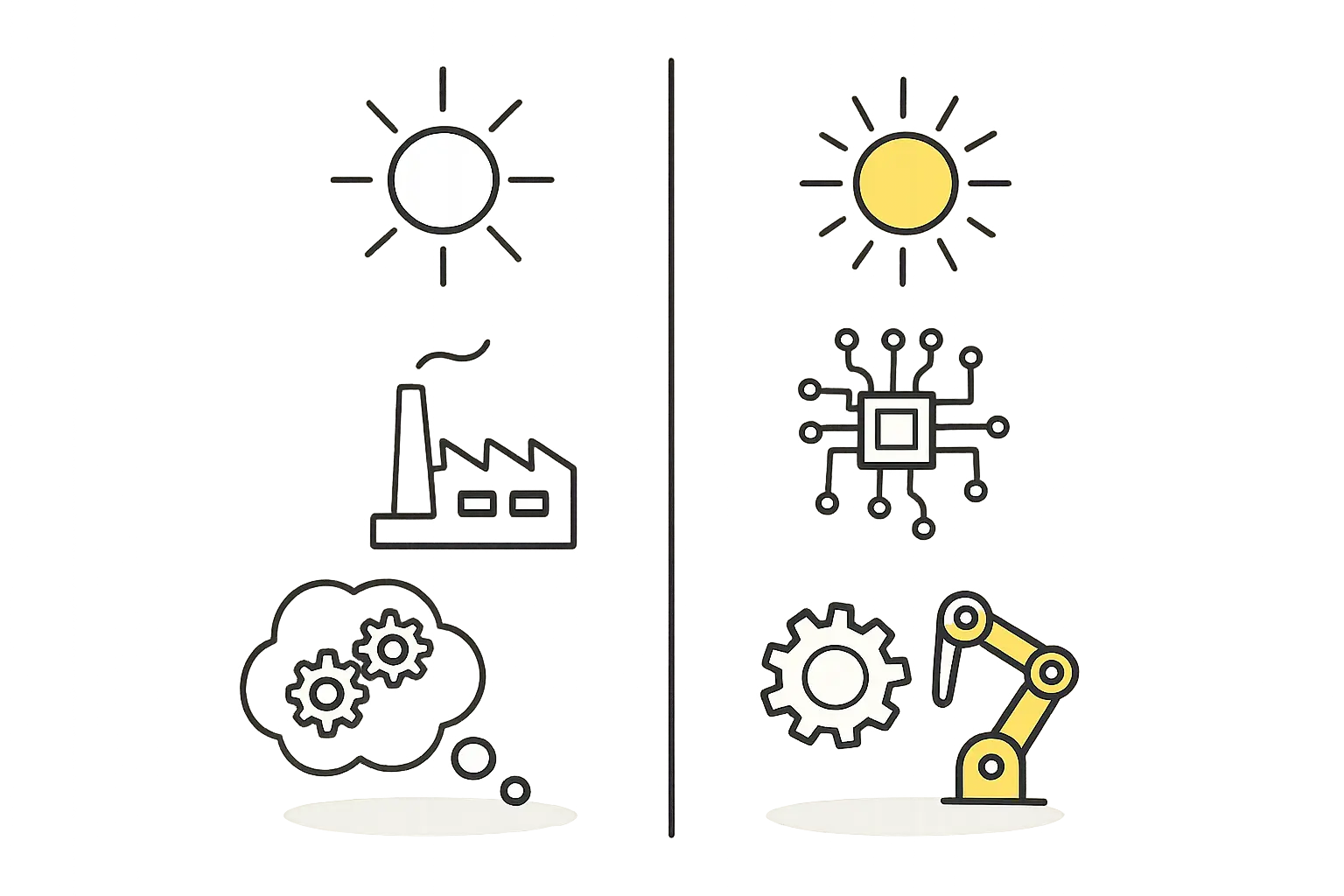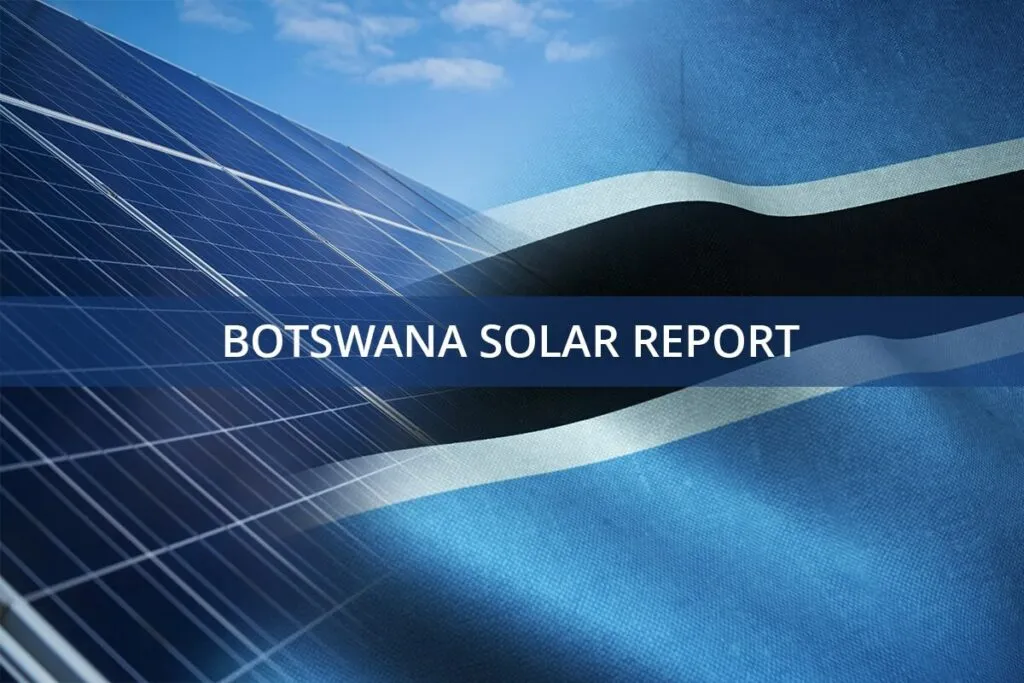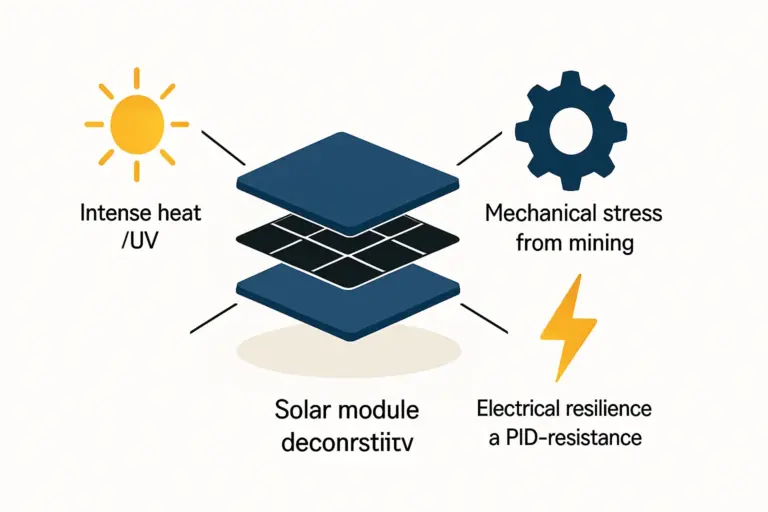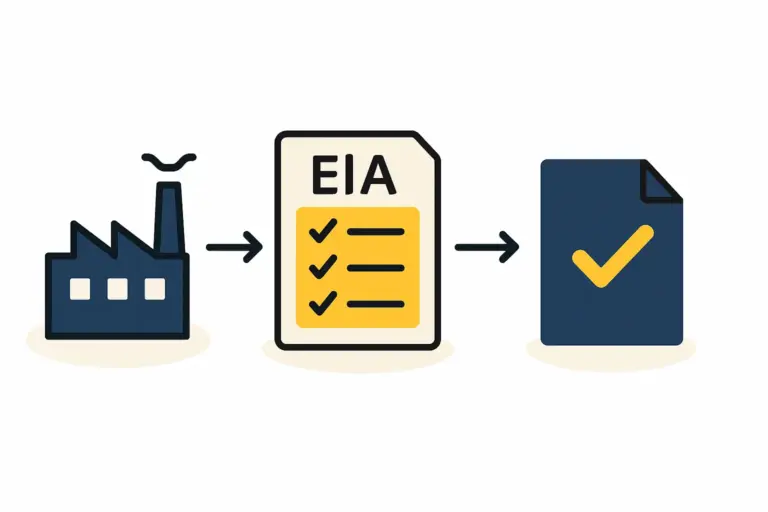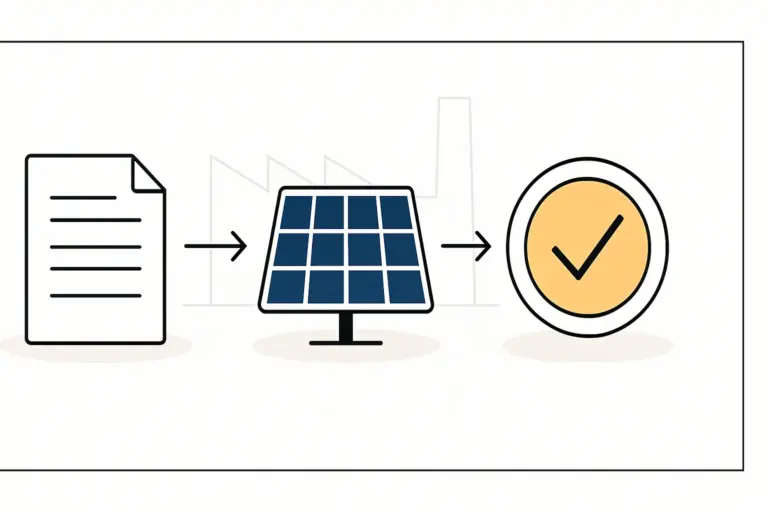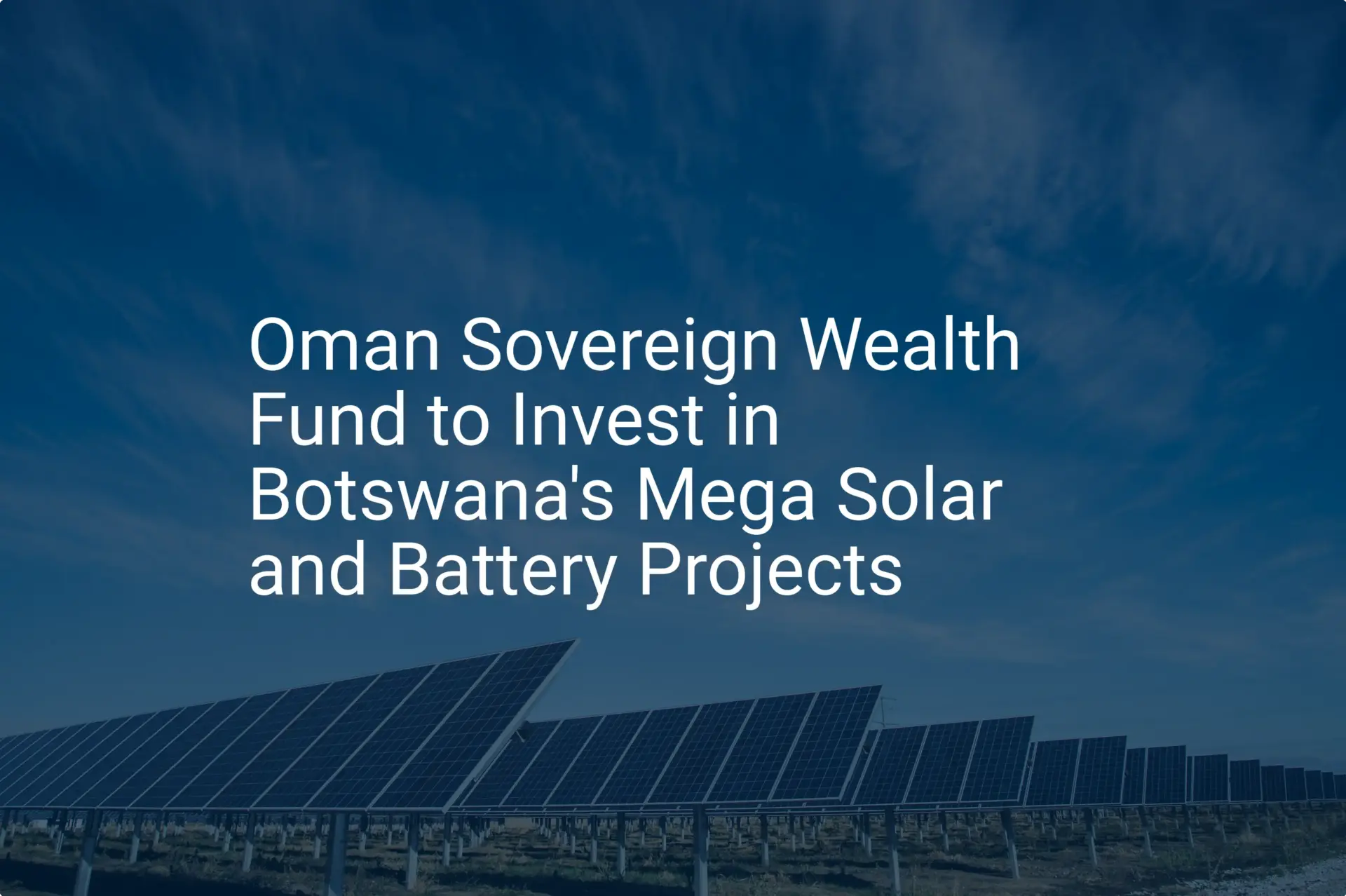Investors planning to enter the African solar manufacturing market face several critical decisions. After selecting a politically and economically stable country like Botswana, the focus narrows to one key question: where should a new factory be established? For many, the choice comes down to the country’s two primary economic hubs: the capital city, Gaborone, in the south, and the industrial heartland of Francistown in the north.
While both cities offer compelling advantages, the optimal choice isn’t universal. It depends entirely on a business’s strategic priorities—whether that’s proximity to key export markets, access to a specific labor profile, or the need to control operational costs. This analysis compares Gaborone and Francistown, examining the core factors that influence the success of a new solar module manufacturing facility.
Table of Contents
Strategic Location and Logistics
A factory’s physical location shapes everything from supply chain efficiency and raw material import costs to the speed at which finished products can reach their intended markets.
Gaborone: The Southern Economic Gateway
Located in the southeast, Gaborone is Botswana’s administrative and commercial capital. Its primary logistical advantage is its proximity to South Africa, the region’s largest economy.
-
Road Networks: The A1 highway provides a direct, well-maintained corridor to major South African industrial centers like Johannesburg and Pretoria, typically a four- to five-hour drive. This proximity is critical for sourcing specialized components and exporting finished modules.
-
Air Freight: Sir Seretse Khama International Airport (GBE) offers the country’s most extensive connections for international air freight and business travel, simplifying the movement of personnel and time-sensitive cargo.
For a business model that relies heavily on the South African supply chain or targets the Southern African Customs Union (SACU) market, Gaborone offers a distinct geographical advantage.
Francistown: The Northern Hub to the SADC
Often called the “Capital of the North,” Francistown has a long history as a center for mining and trade. Its strategic position offers a different set of logistical benefits.
-
Gateway to the North: The city serves as a crucial transit point to Zambia, Zimbabwe, and, by extension, the Democratic Republic of Congo (DRC). For manufacturers targeting these rapidly growing northern markets, Francistown can significantly reduce transit times and costs.
-
Rail Infrastructure: As a key hub on the regional rail network, Francistown provides a cost-effective option for transporting bulk raw materials (like glass and aluminum frames) and finished goods.
A manufacturing operation focused on serving Central and Southern Africa beyond the immediate SACU region may find Francistown’s location a more strategic fit.
Infrastructure and Utility Access
Solar module manufacturing is a sophisticated operation that demands consistent, high-quality utilities, as any interruption in power or water can lead to costly production halts.
While national providers—Botswana Power Corporation (BPC) and Water Utilities Corporation (WUC)—service the entire country, the quality and reliability of services can differ between the established industrial areas of each city.
-
Power Stability: As the capital, Gaborone generally benefits from a highly stable electrical grid within its designated industrial zones, such as the Botswana Innovation Hub and areas governed by the Special Economic Zones Authority (SEZA). Francistown’s grid is also robust, with proximity to the Morupule Power Station, but investors should carefully evaluate the specific industrial park they are considering.
-
Water and Connectivity: Both cities offer reliable water and increasingly robust fiber optic internet services. However, Gaborone’s newer industrial parks often feature more modern, “plug-and-play” infrastructure.
Auditing a specific site’s utility capacity against the factory’s projected needs is a critical planning step, as understanding these requirements early on prevents costly retrofits and operational delays.
Labor Pool and Skills Availability
A factory’s success hinges on its people, making the availability of skilled, semi-skilled, and managerial talent a decisive factor in site selection.
Gaborone: Access to Professional and Administrative Talent
As the nation’s primary urban center, Gaborone boasts the largest and most diverse population.
-
Higher Education: The city is home to the University of Botswana and numerous other tertiary institutions, producing a steady stream of graduates in engineering, finance, and business administration.
-
Managerial Pool: The city is also home to a larger concentration of experienced professionals and multinational corporate headquarters, providing a deeper pool of potential managerial and executive talent.
Francistown: A Foundation in Industrial and Technical Skills
Francistown’s long history as a hub for mining and heavy industry has cultivated a different kind of workforce.
-
Vocational Skills: The local labor force often possesses strong technical and vocational skills relevant to manufacturing, maintenance, and plant operations.
-
Cost of Labor: Labor costs in Francistown may be comparatively lower than in the capital, a factor that can significantly impact operational expenditures for a labor-intensive assembly line.
Experience from similar turnkey projects shows that finding experienced production line supervisors is a common challenge for new ventures. While Gaborone may offer a wider professional network, Francistown’s industrial base provides a solid foundation of technical operators.
Land and Operating Costs
Initial capital outlay and ongoing operational costs are fundamental to any investment decision, and here, the two cities present a clear trade-off.
In Gaborone, high demand for industrial land, particularly within prime zones like the SEZA areas, translates to higher acquisition or lease costs. Typical industrial land prices can be 40–60% higher than in Francistown. This premium, however, is often justified by superior infrastructure and proximity to key services.
Francistown, by contrast, offers more affordable and readily available industrial land. This allows for larger-scale developments or provides significant cost savings for new ventures. Lower ancillary costs, such as employee housing and transportation, can also contribute to lower overall operating expenses.
Making the Final Decision: A Structured Approach
There is no single “correct” answer; the optimal location is the one that best aligns with a manufacturer’s specific business model. This decision should be guided by a weighted analysis of these factors within a comprehensive business plan.
Consider Gaborone if your priorities are:
- Exporting primarily to South Africa and the SACU market.
- Requiring frequent international travel or air freight.
- Needing access to a large pool of professional and administrative staff.
- Valuing proximity to government ministries and financial institutions.
Consider Francistown if your priorities are:
- Targeting export markets in Zambia, Zimbabwe, and Central Africa.
- Requiring a large plot of land at a more affordable cost.
- Capitalizing on a workforce with a strong industrial background and opportunities within the Francistown Special Economic Zone.
- Utilizing rail freight for the movement of bulk goods.
Ultimately, committing to a location requires a detailed feasibility study, including site visits and engagement with local authorities like the Botswana Investment and Trade Centre (BITC).
Frequently Asked Questions (FAQ)
-
What are the key government agencies to engage for setting up a factory in Botswana?
The primary point of contact is the Botswana Investment and Trade Centre (BITC), which assists investors with everything from company registration to securing permits. The Special Economic Zones Authority (SEZA) is also critical if you plan to locate within a designated SEZ. -
Are there specific tax incentives for manufacturing in Botswana?
Yes, Botswana has one of the most competitive corporate tax regimes in Africa. The standard corporate tax rate is 22%, but manufacturing companies may qualify for a reduced rate of 15%. Additional incentives may be available within Special Economic Zones. -
How long does it typically take to establish a solar factory in Botswana?
From initial site selection to the start of production, a timeline of 12 to 18 months is realistic. This includes company registration, land acquisition, construction, machine importation and installation, and staff training. Entrepreneurs who have successfully established operations often emphasize the importance of early engagement with BITC to streamline this process. -
What is the typical investment required for a small-to-medium solar factory?
The investment for a 20–50 MW semi-automated solar module assembly line, excluding the building and land, generally falls in the range of USD 2-5 million. A detailed financial model is a core component of the business planning phase. -
Is local financing available for such industrial projects?
While international financing is common, institutions like the Citizen Entrepreneurial Development Agency (CEDA) and the National Development Bank (NDB) may offer financing solutions, particularly for joint ventures with Batswana partners.
